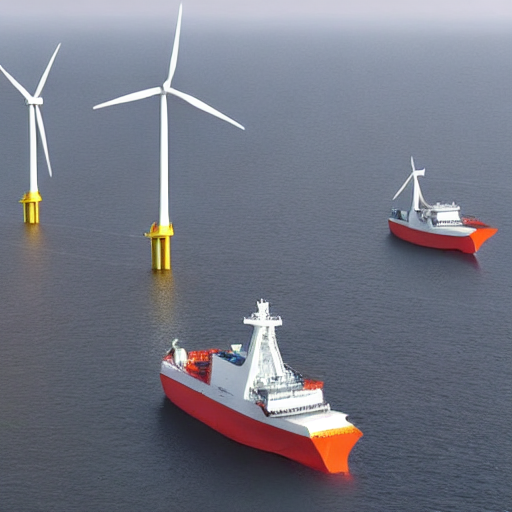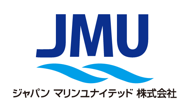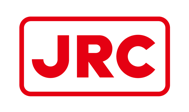経緯と狙い / Background and Target
船による海上物流は世界の約80%、日本の99%以上の貨物を運ぶ社会基盤として人々の生活、経済、社会活動を支えています。日本の海事産業は、「世界の脱炭素化の潮流の中での新たな技術開発とその社会実装」、「海運サービス維持のための安全性向上と働き方改革のための自動運航船の導入」、「高度化する船舶の設計・製造プロセスにおける圧倒的な生産性確保」といった解決すべき課題を抱えています。
これらの課題に取り組むための有効な手段として期待されるのが、自動車産業で導入が進むモデルベース開発(MBD、注2)とモデルベース・システムズエンジニアリング(MBSE、注3)です。MBDでは製品やそれを構成する要素の機能をコンピューター上のモデルとして表現し、シミュレーションによって動作を確認するアプローチを取ります。MBDにより、船舶に新しい要素技術を採用する効果について、実運航を想定したシミュレーションの中で繰り返し検証することが可能になります。またMBSEは、社会の変化やステークホルダーのニーズを的確にとらえて、製品を取り巻くシステム全体を俯瞰して表現することで、最適な設計・開発を実現する手法です。MBDとMBSEを利用することで、複雑な船の設計でも迅速に最適化が図られるだけでなく、荷主・運航者をはじめとする幅広いステークホルダーが参加する協調的な開発プロセス「海事デジタルエンジニアリング」を創り出すことができるようになります。
「海事デジタルエンジニアリング」社会連携講座は東京大学大学院新領域創成科学研究科に設置され次世代のサステナブルな海上物流を構築するためのシミュレーション共通基盤(注4)の開発に取り組みます。海事分野のためのMBDとMBSEについて研究教育する拠点を、東京大学大学院工学系研究科をはじめそれら先進的なエンジニアリングの取り組みを進める国内外の他大学や研究機関、それらの活用で先行する自動車、宇宙・航空といった他産業の専門家とも幅広くネットワークを形成して、新技術の開発と社会実装、デジタルエンジニアリングを海事分野に適用する高度人材の育成を目指します。また洋上風力発電や海底資源開発など、海洋の産業利用を促進する分野への展開も期待されます。
Maritime logistics by ship supports people’s lives, economy, and social activities as a social infrastructure that carries about 80% of the world’s cargo and more than 99% of Japan’s cargo. Japan’s maritime industry faces the following issues to be resolved: “development of new technologies and their social implementation in the context of the global trend toward decarbonization,” “introduction of automated vessels to improve safety and work styles to maintain shipping services,” and “securing overwhelming productivity in the increasingly sophisticated ship design and manufacturing processes.
MODE aims to address these challenges by using model-based development (MBD)* and model-based systems engineering (MBSE),** which are increasingly being introduced in the automobile industry. MBD and MBSE approach those problems by examining the functions of products and components as computer models and then checking their behaviors through simulations. MBD and MBSE enable the optimization of complex system designs and the creation of a collaborative development process (“Maritime and Ocean Digital Engineering”) involving a wide range of stakeholders, including shippers and operators.
The program for research and education using MBD and MBSE for the maritime field will be established by forming a broad network between the Graduate School of Frontier Sciences and the Graduate School of Engineering at the University of Tokyo and research institutes around the world that are promoting advanced engineering initiatives, and relevant experts from other industries such as automobiles, aerospace, and aviation. The program aims to develop, implement, and upskill users in the development of new technologies. It is also expected to expand into maritime fields such as offshore wind power generation and subsea resource development.
講座概要 / Outline
講座名称 海事デジタルエンジニアリング講座
設置期間 2022年10月1日から2027年9月30日まで(5年間)
代表教員 鈴木克幸(東京大学大学院新領域創成科学研究科海洋技術環境学専攻 教授)
活動内容 海事産業におけるモデルベース開発手法およびシミュレーション共通基盤、脱炭素・自動運航船に関する技術および国際ルールについての研究、国際連携、人材育成
Program Title: Maritime and Ocean Digital Engineering (MODE)
Period: From October 1, 2022, to September 30, 2027 (5 years)
Activities: Research and education on Model-based development methods and a common simulation platform in the maritime industry. Research and education on technologies and international rules for decarbonization and autonomous ships. International collaboration
Representative Faculty Member: Katsuyuki Suzuki, Professor, Department of Ocean Technology, Policy, and Environment, Graduate School of Frontier Sciences, The University of Tokyo
注1:社会連携講座 民間等外部の機関から受け入れる経費等を活用して設置される講座または研究部門
注2:Model-Based Development(MBD)。シミュレーションモデルを設計、開発で活用し、実物の試作や試験を通しての改良を大幅に減らすことでトータルの開発工数、工期を削減するための開発手法
注3:Model-Based Systems Engineering(MBSE)。システムが達成するべきゴールに基づき、オペレーションコンセプトを定め機能要件等を明らかにしシステムの設計、検証、およびそのマネジメントを行うシステムズエンジニアリングの手法のうち、特に、システムの記述にモデル化言語を活用する手法
注4: 令和4年7月20日 岸田内閣総理大臣へ手交された「総合海洋政策本部参与会議意見書」 ならびに「海洋産業の国際競争力強化に向けた共通基盤と人材育成検討プロジェクトチーム(PT)報告書」
*1: Model-based development (MBD) A development method to reduce the total man-hours and period for development by utilizing a simulation model in the design and development of a product, and to reduce physical prototyping and trial tests.
*2: Model-Based Systems Engineering (MBSE) A method of systems engineering that uses a modeling language to describe the system by defining the concept of operation and clarifying functional requirements based on the goals to be achieved by the system, and then designing, developing, verifying, and validating the system.
参画企業・協力企業(2024年8月現在)/ Member (As of Aug 1 , 2024)
MODEは、日本郵船グループの株式会社MTIと、ジャパン マリンユナイテッド株式会社、三菱重工グループの三菱造船株式会社、古野電気株式会社、日本無線株式会社、BEMAC株式会社、一般財団法人日本海事協会(および子会社NAPA Ltd)の7社で、2022年10月1日に発足しました。また、2023年4月3日にJRCS株式会社、株式会社商船三井、株式会社新来島サノヤス造船、常石造船株式会社、寺崎電気産業株式会社、ナブテスコ株式会社の6社が新たに参画しました。2023年7月27日にダイハツディーゼル株式会社(現ダイハツインフィニアース株式会社)が新たに参画しました。2024年8月1日に今治造船株式会社、東京計器株式会社、株式会社日本海洋科学、株式会社三井造船昭島研究所(現常石造船昭島研究所株式会社)が新たに参画しました。
本講座ではサステナブルな海上物流を実現するシミュレーション共通基盤を構築し、デジタルエンジニアリングを活用した海事分野の技術開発と人材育成を推進していきます。
MTI Co., Ltd. (NYK Group company), Japan Marine United Corporation, Mitsubishi Shipbuilding Co., Ltd. (Mitsubishi Heavy Industries (MHI) Group company), Furuno Electric Co., Ltd., Japan Radio Co., Ltd., BEMAC Corporation, ClassNK, and NAPA Ltd., have come together to establish the “Maritime and Ocean Digital Engineering” (MODE) cooperation program at the University of Tokyo from October 1. JRCS Co.Ltd., Mitsui O.S.K. Lines, Ltd., Shin Kurushima Sanoyas Shipbuilding Co.,Ltd., Tsuneishi Shipbuilding Co., Ltd., Terasaki Electric Co., Ltd., Nabtesco Corporation have joined MODE on April 3, 2023. Daihatsu Diesel Mfg. Co., Ltd. (currently Daihatsu Infinearth Mfg. Co., Ltd.) has joined MODE on July 27, 2023. Imabari Shipbuilding Co., LTD., Tokyo Keiki Inc., Japan Marine Science Inc., and Akishima Laboratory Inc. (currently TSUNEISHI AKISHIMA LABORATORY Co., Ltd.) have joined MODE on Aug 1, 2024.
The program aims to promote and enhance digital engineering technology and skills for the maritime sector by building a cooperative simulation platform.

Mission, Vision, and Value
MISSION
革新の旗手
Innovation Leader
海事・海洋産業のデジタルエンジニアリングの基盤技術の確立・実装を先導し、強い競争力と、持続可能な社会に向けた技術力を持つ産業へのトランスフォーメーションを後押ししていく
MODE will lead the establishment and implementation of basic technology for digital engineering in the maritime and marine industries, and support the transformation of industries with strong competitiveness and technological capabilities toward a sustainable society.


VISION
新時代の共創基盤 Collaboration Platform
海事・海洋産業における新たな潮流(モード:流行、方法、様式)を常に生み出し続ける源泉、拠点となる
Become a source and base that constantly creates new trends (modes: trends, methods, styles) in the maritime and marine industries
VALUE
OCEAN Minds
OPEN 来るもの拒まず、積極的なネットワーキング
COLLABORATION 開発基盤は協調、ものやサービスでは競争
EVOLUTION 産業の進化の源泉となり、参加者自身も進化する
AMBITIOUS 海事だけでなく社会を、日本だけでなく世界を変える
NODE 産業・技術・社会をつなぐ結節点となる
OPEN: Active networking without rejecting anything that comes
COLLABORATION: Collaboration on the basis of development, competition on products and services
EVOLUTION: Become the source of the evolution of the industry, and the participants themselves evolve
AMBITIOUS: Changing not only maritime affairs but society, not only Japan but the world
NODE: A node that connects industry, technology, and society



のみ-1-1024x387.jpg)















